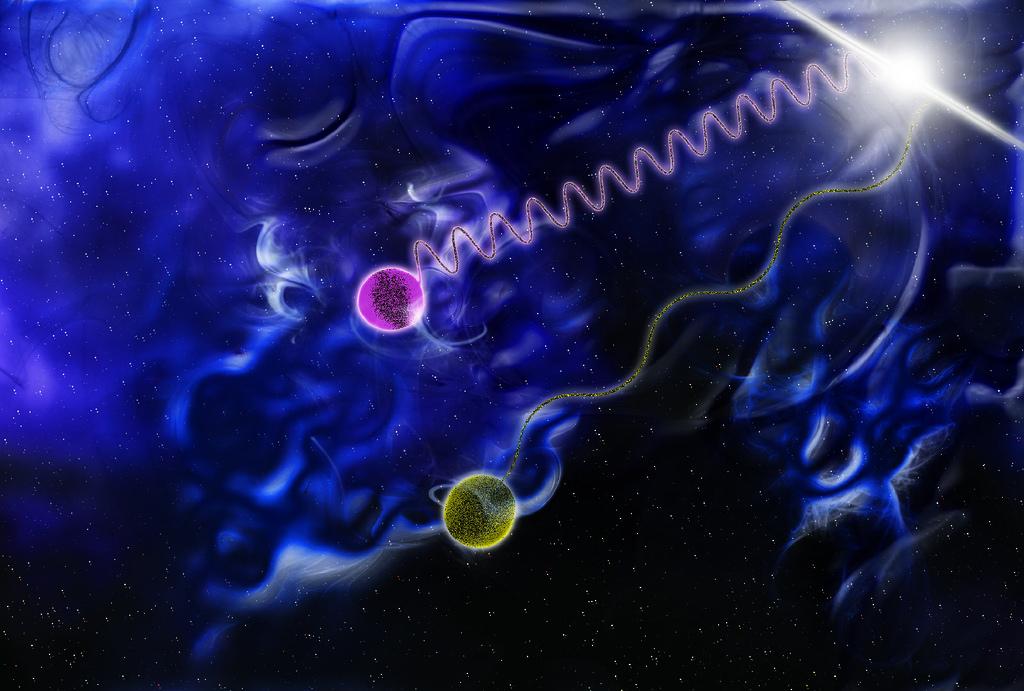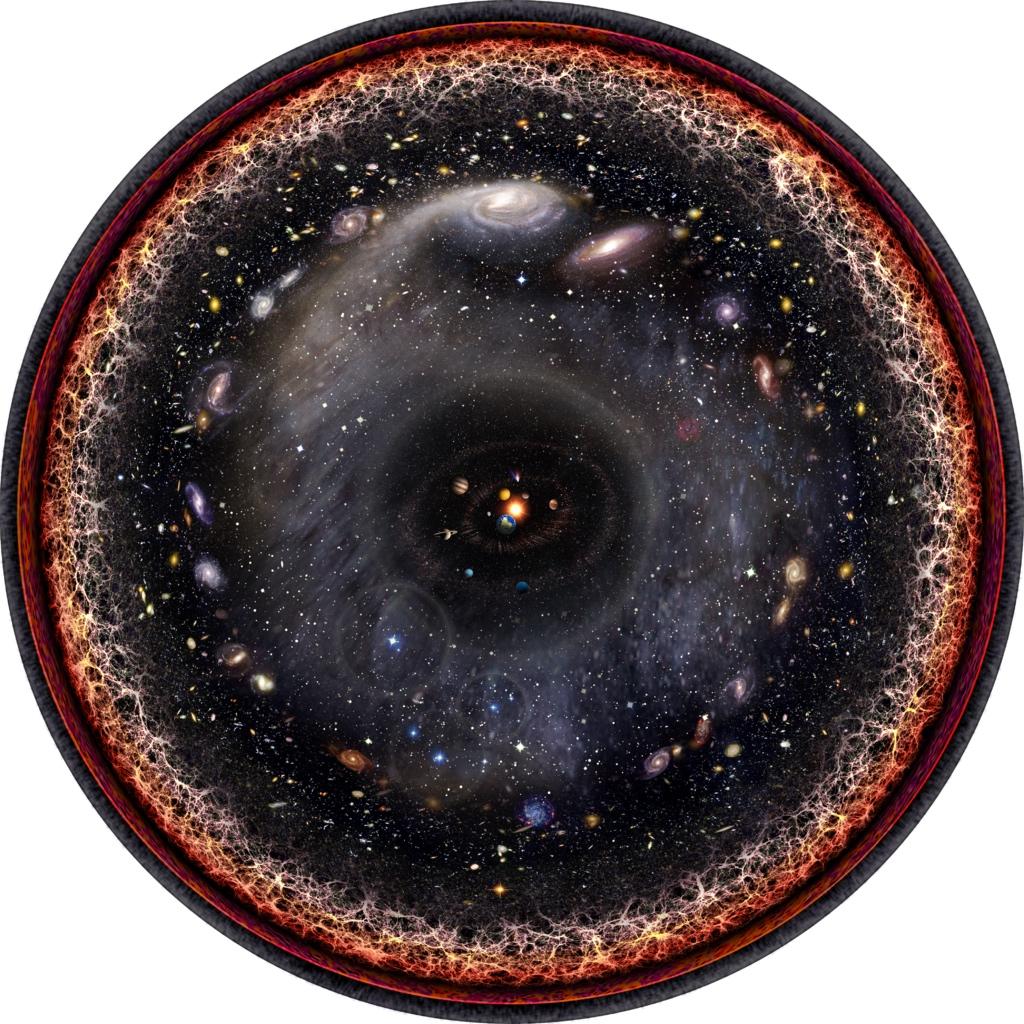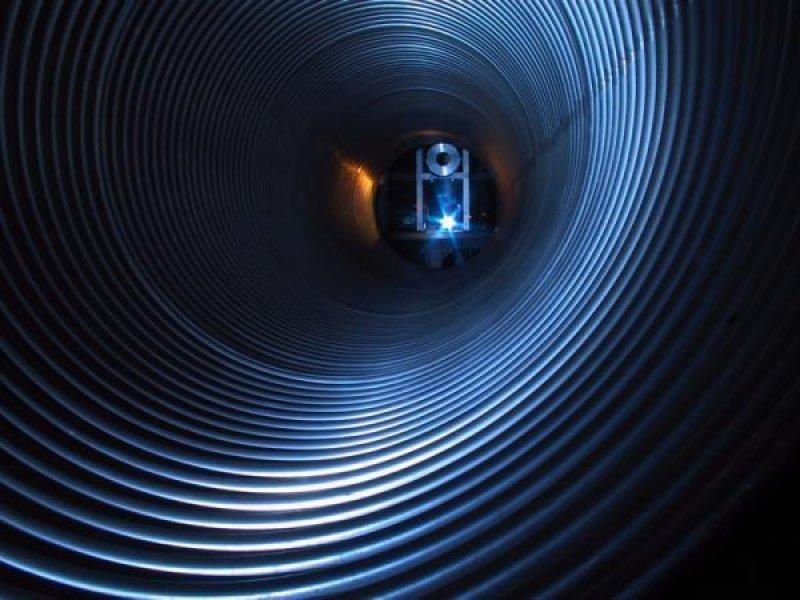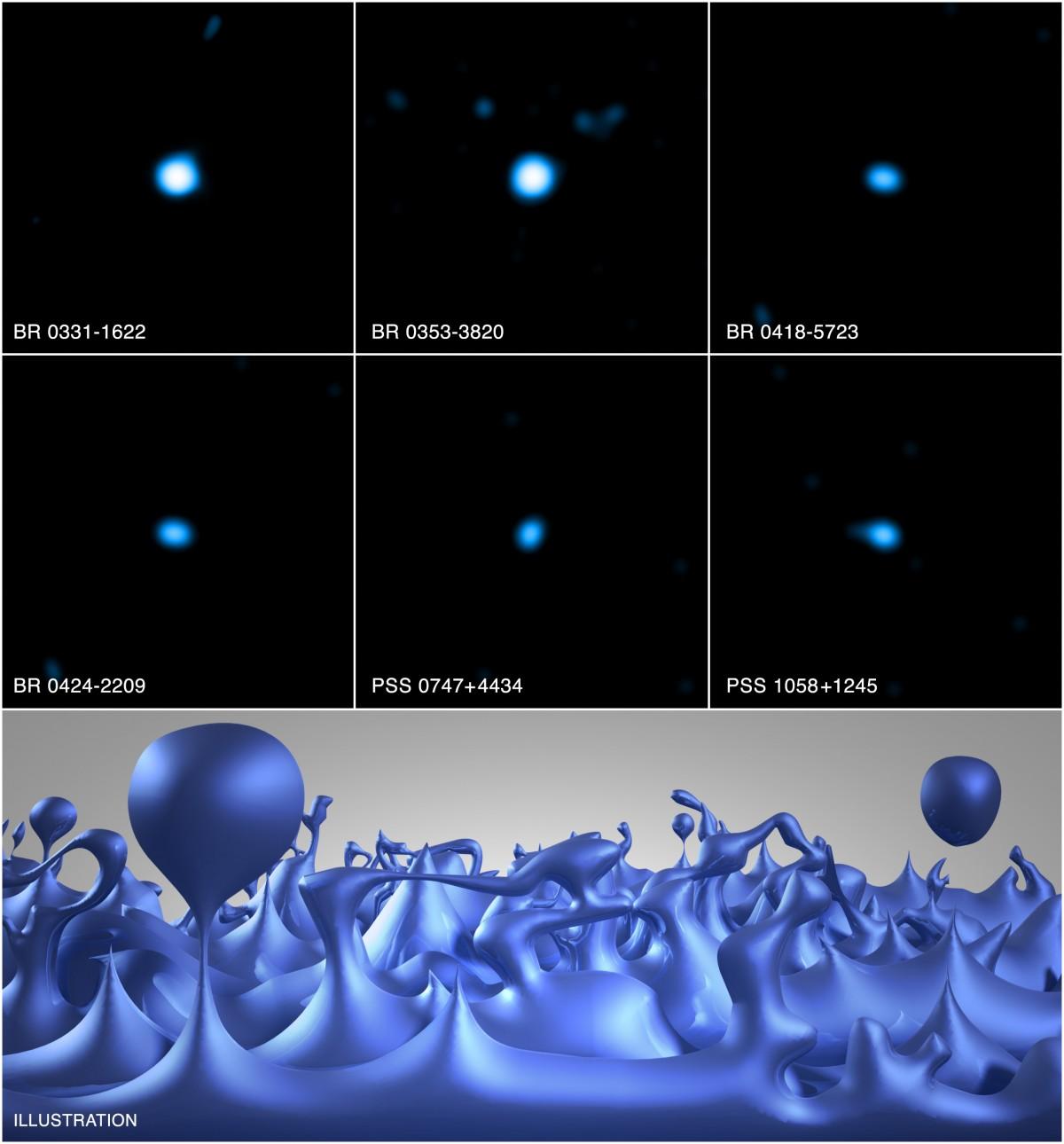Ask Ethan: Can the Universe be a simulation?

The four-qubit computer from IBM, the leading word in computing, may as a result pave the way for computers powerful enough to simulate the Universe.
Every day we take, as a matter of course, that what we perceive as reality is in fact a reflection of objective reality. The fact that the atoms and molecules that make up our bodies really exist; that photons interacting with us have energy and momentum; that neutrinos passing through our body are indeed quantum particles. But, perhaps, the Universe, from the smallest subatomic particles to the largest collections of galaxies, does not exist physically, but is only a simulation, working in a different, real reality. Two of my readers (and an old school friend) want to learn more about this idea with simulation.
Rudy: I am skeptical about this idea, but it is rather interesting.
Samir: This is a very interesting topic and I would really like to hear what Ethan says.
It may sound like a science fiction story, but it is supported by certain physical considerations.

Photons with completely different levels of energy move at the same speed. This and other features can serve as proof that our Universe is just a simulation.
One of the greatest mysteries of nature is why precisely such quantities exist in the laws of physics. Why is there a limited set of fundamental particles, interactions and constants that describe the Universe? We did not find any mathematical or physical principles that determine what our Universe should consist of, or allow us to derive some fundamental things. We ourselves are inside the Universe and can observe only a limited part of it with a limited level of sensitivity. This is partly due to the limitations inherent in our equipment, but partly these limitations are fundamental.

The observable Universe is on a logarithmic scale, where the edge of the red glow indicates the relic radiation that we see.
We see nothing beyond 46 billion light-years , since the amount of time that has passed since the Big Bang, together with the speed of light, is not enough to look further. Today, we cannot study distances less than 10 -19 due to the limitations of our accelerators, but the Universe itself has a fundamental quantum limit of 10 -35 m. Even with unlimited technologies, we could not probe smaller distances. Attempts to simultaneously measure several parameters reveal fundamental uncertainties that, in principle, cannot be overcome: the quantum limits of the knowable.

Illustration of the fundamental uncertainty between position and momentum at the quantum level
It is possible that there are real, physical explanations for why these and other parameters of the Universe have just such a form, and we just have not yet discovered these explanations. But it can also be assumed that their values are such because they were programmed into our Universe. Not figuratively, but in real: it is possible that the Universe is indeed a simulation. Our computing power continues to grow at an alarming rate over the past 70 years. We moved from calculators with four functions, comparable in size to a building, and working slower than people mathematicians, to supercomputers the size of a printer capable of performing simulations with trillions of particles and simulating billions of years in minutes.
If the computing power increases to rather large levels, we can, in principle, simulate each particle of the Universe for the entire period of our history. If the computer on which the situation is going would be quantum, capable of keeping each particle in an uncertain quantum state, it could embed this quantum uncertainty into all aspects of the simulation. If planets with living, rational organisms appeared in this simulation, would they be able to determine that they live in a simulation? And of course, it is quite easy to find scientists who claim that they could not. For example, Rich Teril, a NASA scientist, makes statements like:
Even what we see as continuous - time, energy, space, volume - has finite limitations for its values. Then our universe is both finite and computable. These properties allow the universe to be a simulation.

Certain correlations of physical observations may be signs of a simulation of the universe, but many assumptions remain uncertain.
But from a physical point of view this may not be the case. Quantum uncertainty may be real, but this does not mean that space and time are quantized, or that the photon energy cannot be arbitrarily small. The observable Universe may be finite, but if you add an unobservable to it, it may turn out to be infinite. We also use various tricks to reduce the computational load in simulations, but evidence that the Universe uses the same tricks should be seen as “blurry” results at sufficiently short distances, which we do not observe.

One of the channels of the GEO600 detectors, which sought to blur the signals corresponding to the fact that the Universe is a simulation. No blur was detected.
Although the results of information theory are often manifested in advanced studies of theoretical physics, this may be the result of the fact that both these disciplines are subject to internally consistent mathematical relationships. Some of the arguments are that in the future it will be easy to simulate the mind, which means that the simulated minds at some point will become more than organic, and this means most likely that we all live in the simulation is so superficial and so easy denied that it becomes sad because they are used as reasonable. For example, why should someone who is able to simulate the entire Universe, take care of the simulation of the human mind? In April 2016 a debate was held on this issue with the participation of several scientists, and Lisa Randall spoke best of all on the simulation hypothesis:
I really wonder why so many people find this question interesting.
This opportunity, of course, rouses the imagination. And we, of course, can impose restrictions on this hypothesis, measuring space, time, matter and energy with ever better accuracy and at ever higher energies. But our understanding of reality has always progressed due to the fact that we asked deeper questions about the Universe in new and fundamental ways. Appealing to the anthropic principle, just like turning to the simulation hypothesis in search of answers to today's difficult questions, looks like a disillusionment with science.

NASA Chandra X-ray telescope was able to impose restrictions on the grain of space, watching the distant quasars
If you find evidence — for example, studying cosmic rays — that spacetime is discrete, this favorably affects our knowledge of the Universe, but does not prove the simulation hypothesis. It is impossible to prove it at all - any glitches that we can or cannot find can be properties of the Universe itself, or parameters placed or corrected by the owners of the simulation. From a philosophical point of view, such a hypothesis may be attractive to a civilization that considers itself on the verge of creating artificial intelligence. It is possible that for a sufficiently advanced simulator, we seem to be as simple as the pixels in Conway’s Life game.

But we do not judge the scientific merit or plausibility of an idea by its attractiveness. Physics is so fascinating in particular because of its counterintuitiveness, and also because of how strong it is in terms of predictions. Even if we really live in a simulation, it should not affect our search for ways to understand the laws of nature, their origins, the reasons why the fundamental constants are just such, or the answers to other questions that can be asked about the nature of reality. “Because we live in a simulation” is not an answer to these questions; it may just be an integral part of our reality.
The riddles of nature remain riddles that we need to solve, and it is we who must decide to search for answers to them.
Ethan Siegel - astrophysicist, popularizer of science, blog Starts With A Bang! He wrote the books Beyond The Galaxy , and Treknologiya: Star Trek Science [ Treknology ].
All Articles